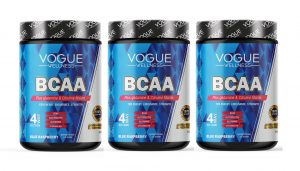New Health Axis
BCAA BENEFITS for Improved Athletic Performance And Training
If you enjoy lifting heavy objects over and over, you’ve probably heard of BCAAs. BCAAs, or branched chain amino acids, are one of the most popular sports performance supplements on the market. BCAAs have been shown in studies to improve athletic performance by reducing muscle mass breakdown, improving recovery times, and stimulating muscle protein synthesis, allowing you to stack on more gains. If you’re looking for a supplement to help you crush your workouts, you should consider adding BCAAS to your regimen.
What Exactly Are BCAAs?
The foods you eat provide energy. When you digest macronutrients like protein, they are broken down into their most basic form, amino acids. This is why branched chain amino acids are frequently referred to as protein building blocks. Leucine, isoleucine, and valine are the three essential amino acids found in branched chain amino acids. Because your body does not produce these amino acids naturally, you must obtain them from the foods you eat or from supplements.
BCAA Advantages:
Aids in Muscle Growth
One of the many advantages of BCAAs is their role in the development and maintenance of lean muscle mass. According to a study published in the Journal of Nutrition, BCAAs, specifically Leucine, have anabolic effects on protein metabolism by increasing the rate of muscle protein synthesis and decreasing the rate of protein degradation, or breakdown.
Muscle protein synthesis occurs as a result of intense physical stress, which is caused by micro-tears and mini-trauma to the muscle tissue during training. By taking BCAAs before or during your workout, you will stimulate protein synthesis, which will aid in the development of lean muscle mass and strength.
Improves Power Output
The rate of adenosine triphosphate (ATP) or energy used during a single or multiple maximal efforts against a submaximal load is referred to as power. Peak power is defined as the maximum output or production of work in a given amount of time. Peak power is an important metric for endurance athletes and powerlifters because it accounts for a combination of strength, velocity, force, and neuromuscular adaptations when performed at 90-100% of maximum heart rate capacity for a short period of time.
According to a research with BCAA it was concluded that – Peak power performance and average power increased by 19%, respectively.
More peak power is directly related to improved athletic performance. You’ll be able to improve time trials, sprint performance, load, and outperform the competition if you can generate more power during a max effort.
Improves Muscle Recovery After Exercise
Resistance training and weight lifting cause micro-tears in your muscle fibers, resulting in muscle soreness. Soreness can disrupt your regular programming and have a significant impact on peak power, strength, and rep volume.
A study published in the journal Nutrients looked at the effects of BCAA supplementation on resistance training recovery. Participants were randomly assigned to either a BCAA or a placebo group in a randomised, double-blind, placebo-controlled study. The BCAA group reported significantly less muscle soreness than the placebo group 72 hours after exercise .
Reduces Fatigue and Increases Energy Levels
Several factors, including workout intensity, duration, and fitness level, are known to cause fatigue during intense bouts of exercise. According to research, BCAAs can delay muscle fatigue by restoring tryptophan levels, a chemical that converts to serotonin and causes fatigue.
Changes in the 5-hydroxytryptamine (5-HT) level in the brain have been proposed as one mechanism for fatigue. Tryptophan crosses the blood-brain barrier during exercise, where it is converted to 5-hydroxytryptamine (5-HT), or serotonin. Higher serotonin levels during exercise alert the brain that your body is fatigued, resulting in decreased muscular endurance and strength.
The amount of tryptophan and other available amino acids, including BCAAs, which are transported along the same carrier pathway, influence 5-HT transport. While BCAAs and tryptophan compete to cross the blood-brain barrier, BCAAs almost always win. That is, taking BCAAs before or during your workout allows less tryptophan to cross the blood-brain barrier, which means less tryptophan is converted into serotonin, resulting in greater muscular endurance and less fatigue.



What Is the Optimal BCAA Ratio?
BCAAs are made up of L-Leucine, Isoleucine, and Valine, and the ratio of BCAAs indicates how much of each amino acid is used to make a product.
Vogue Wellness BCAA, for example, contains 2,000 mg L-Leucine, 1,000 mg L-Isoleucine, and 1,000 mg L-Valine in a 2:1:1 ratio. Which is considered the best BCAA combination for most of us.
Key Takeaway:
Supplementing with BCAAs is a critical component to your overall success if you want to maximise your training results. BCAAs improve critical factors in athletic performance by increasing muscle mass, strength, and enhancing workout recovery. Regardless of your goals, the goal is to build and maintain as much lean muscle mass as possible, and adding a quality BCAA supplement can help you do just that.
High-intensity training for an extended period of time can cause your body to enter a catabolic state; thus, supplementing with BCAAs and maintaining a positive amino acid balance is critical to maintaining, building, and repairing muscle mass.
When shopping for a BCAA supplement, look for one with a 2:1:1 ratio and at least 4g of BCAAs per serving. You can get these essential amino acids from a protein-rich diet, but adding a BCAA supplement to your routine will keep you in an anabolic state and active muscle protein synthesis.

